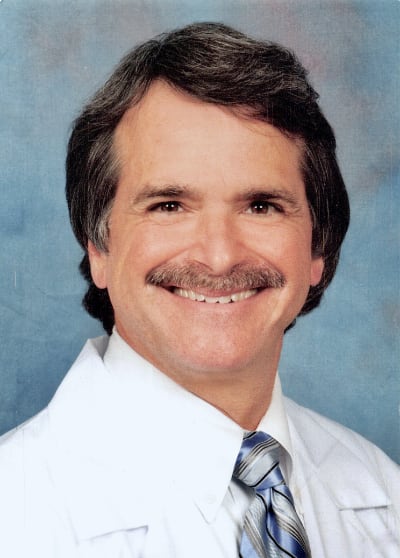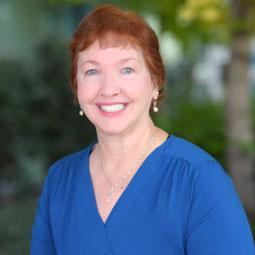A report published by the Centers for Disease Control & Prevention (CDC) in early 2023 described a rise in the diagnosis rate of autism spectrum disorder (ASD). The prevalence has risen from 1 in 36, up from 1 in 44 children in 2018, and for the first time, diagnosis rates are lower for White children than for other races. As pediatricians, social workers, and educators become increasingly versed in ASD diagnosis, treatment, and supportive care, is it possible that the rise in ASD diagnosis is a positive change?
More ASD Diagnoses: Better for Awareness
According to the CDC’s Karen Remley, M.D., M.B.A., M.P.H., FAAP, director of the National Center on Birth Defects and Developmental Disabilities, higher diagnosis rates among children may stem from greater awareness and screenings. “We can’t say for sure, but we suspect this is due to increased awareness leading to more children being identified with autism.”
It is important to note that the report which describes the rise in ASD diagnosis comes from the Autism and Developmental Disabilities Monitoring Network (ADDMN), which spans across 11 states and provides estimates of autism prevalence among children 8 years old. Across a single age group and from only 11 sites, more complete data is needed to confirm widespread conclusions about the prevalence of autism in the U.S. and its implications. As researchers and pediatricians learn more about ASD, more specific estimates may become available that can empower caregivers and healthcare teams to provide children with better access to screenings and early interventions.
Of interest to those who work with children with ASD are the prevalence estimates among groups formerly diagnosed in the minority, including non-White children and girls. While diagnosis rates for girls remain about four times lower than for boys, the 2023 report marks the first time that non-White children had a higher prevalence for ASD than White children.
Higher autism rates point to better early intervention
Increased data around demographics and ASD, in general, contribute to the scientific literature and allow pediatricians to be better prepared for ASD diagnosis and begin intervention early – where there is the best chance for positive change. The more we know, the earlier and more effectively pediatricians can support kids with ASD.
More data is needed overall to understand ASD – we still do not fully understand its cause(s). The 2023 ADDMN report emphasizes the growth of the body of knowledge around ASD and how pediatricians can provide the best support for children and families. Among the most important takeaways is the need for early screenings and interventions.
AAP President Dr. Sandy Chung reminds pediatricians that developmental screenings are recommended at 9, 18, and 36 months, while autism screenings are recommended at 18 and 24 months. According to another ADDMN report, rates of autism screenings fell during the COVID-19 pandemic and have yet to recover. Dr. Chung encourages pediatricians to work together to “Catch up to the progress we have been making to identify children with autism early, which is when we know interventions have the greatest likelihood of success.”
Learning about Autism Across Years and Professions
Pediatricians often work in conjunction with social and education professionals, and as researchers learn more about ASD, so do educators and support service workers. As caretakers for children, increased experience with and training in caring for children with autism spectrum disorder empower healthcare teams to rise together.
Cara Brown is a preschool teacher and certified Child Life Specialist in Endicott, NY, and with just three years of working with children under her belt, she is nonetheless confident in her ability to support children with autism and other developmental disorders. She attributes her comfort in working with these children to her education as a Child Life Specialist and from her years of experience in both internships and professional positions.
“I feel well-trained,” she says. “My degree highlighted developmental disorders and child life development. We were engaged in learning the development of children from birth to age 21, in a social, emotional, and psychological context, including autism.”
In a previous role, Brown worked with an adolescent with ASD who preferred that his sessions with her were kept private from his friends at school. She felt this choice reflected a stigma around autism that is still being broken down. Together, they explored topics such as financial literacy, maintaining healthy boundaries online, and negotiating the differences of friendships between peers, parents, and teachers.
“I realized that I hadn’t learned about developmental differences in medical school. I realized, after being in medicine for 25 years, I didn’t know what the heck was going on with my child. And I wondered about the experience of parents without my background.”
- Dr. Mark Moncino
Dr. Mark Moncino, MD FAAP is a developmental pediatrician who works exclusively with children with developmental needs at the Georgia Center for Autism and Developmental Pediatrics. His passion for this niche group of patients is fueled by personal history and professional fascination. “Based on my own challenges, I began to understand that developmental differences are even more challenging to treat because of the lack of understanding amongst my pediatric colleagues, as well as educators, and the silence around them, both in our broader culture and in the medical field.”

While he is ready and willing to be the specialist that some patients need for whole-family, whole-child behavior change, Dr. Moncino says that general pediatricians can contribute much to the care and support of children with autism or developmental disabilities by screening kids. “You don’t need to be a specialist to serve kids with developmental differences. My biggest recommendation for general peds is using standardized assessments as a screening [tool] for new patients.”
The previous American Academy of Pediatrics President Dr. Colleen Kraft is also a well-known supporter of children with autism and developmental challenges. She backs up Dr. Moncino’s statement: “Changing the paradigm that you’ve got to get a specialist to diagnose before you can do anything is where [general] pediatricians can make a big difference.” She also emphasizes the importance of early intervention.

Pediatricians have a foundational role in supporting the healthcare, social, educational, and family networks that are built to support children with autism, and they are not alone in working hard to empower healthy, happy lives for their patients. As rates of autism rise and the experiences of those who live with it proudly are better understood, pediatricians are in an excellent position to support children alongside their counterparts in other professions, no matter when diagnosis occurs.
To read more about Dr. Colleen Kraft’s and Dr. Mark Moncino’s work with children with autism, be sure to check out their in-depth interviews with PCC’s The Independent Pediatrician.


